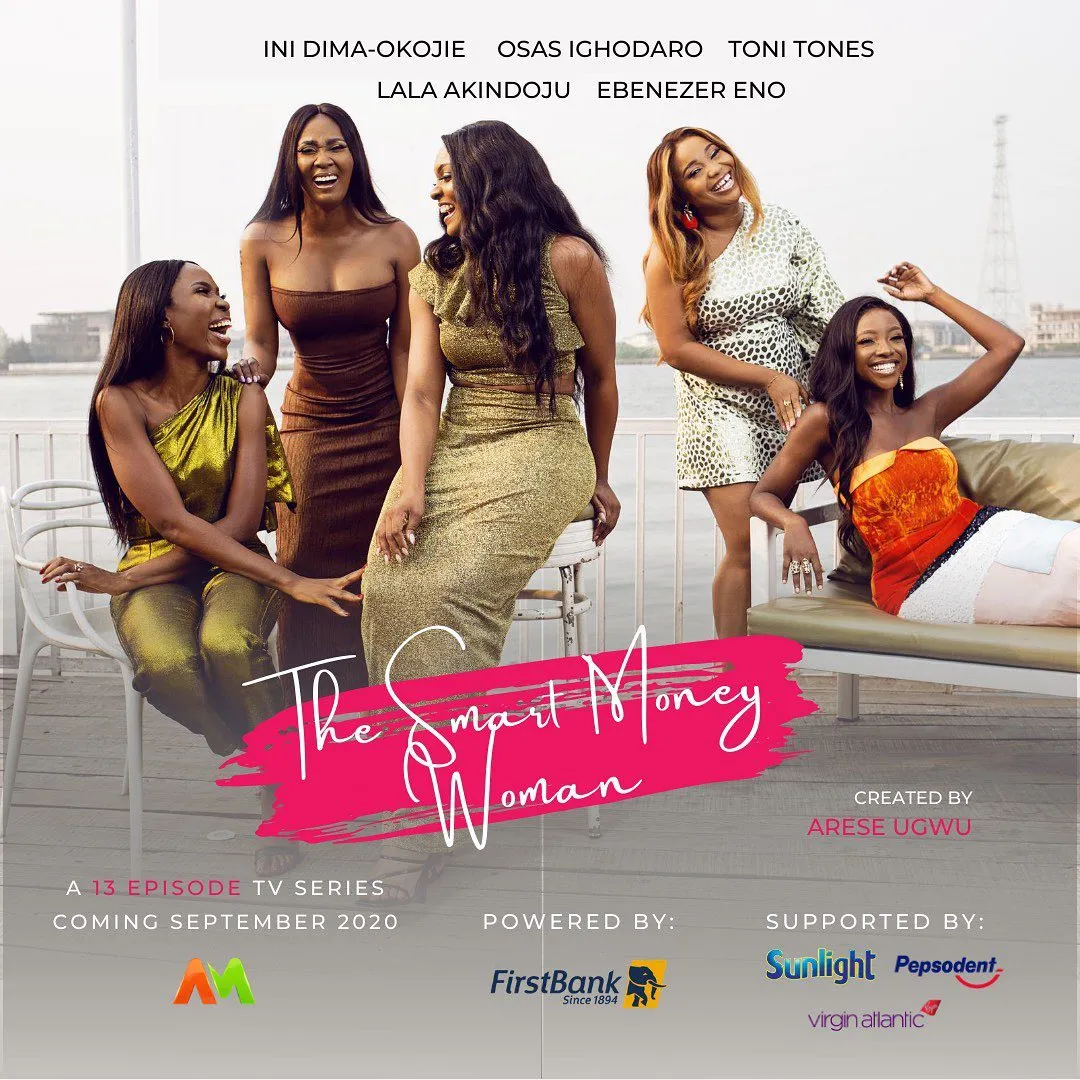Although new to Netflix, The Smart Money Woman first aired on Nigerian TV screens a year ago. It's a 7 episode Nigerian TV series about five closely knit women and their quest for financial freedom. It stars popular faces, Ini Dima-Okojie, Toni Tones, Osas Ighodaro, Lala Akindoju and Ebenezer Eno.
The show is set in the industrious city of Lagos and it journals the lives of these friends who juggle their relationships, families, work, and social life at the same time managing their personal finances.
The main character is Zuri who seems to have her life together but looking close, her lavish lifestyle has her deep in debt. One of her friends, Lara, points out that her 6-figure monthly salary should be enough for her if she cuts down on her spending. This leaves her in deep thoughts and she drafts out her monthly expenditure that leaves her in shock.
Zuri begins a 'money cleanse', doing away with unnecessary spending habits despite it being a taint on her social standing. She also involves her friends in her money cleanse even when they prove difficult and the daddy's girl of the group sees no reason why she should take control of her finances.
Being intentional about money causes Zuri and her friends to make adjustments in every area of their life which becomes evident in their relationships and the type of lives they lead.
My Thoughts
A friend of mine said if you haven't read the book, you need to watch the series and I did just that. The Smart Money Woman is actually an adaptation of a book that goes by the same title. It was written by Arese Ugwu and published in February 2020.
After watching this series, I think I would prefer reading the book. I really feel like the characters did not do justice to the book even if I haven't read it before. I really love the message the book preaches about money management, I like that it's from a Nigerian's point of view, mirroring how the average Nigerian handles personal finance.
There were snippets of the book read in a narrator's voice that were displayed throughout the series to either emphasize or introduce a scene and I liked that, it makes me want to read the whole book.
Now to the performance of the actors, ugh, I'm not impressed. They sounded unnatural and were too stiff for my liking. That's not surprising because it's typical of Nigerian movies to be like that. It's like they spend so much time on making the actors look glam than actually getting the very best performance from them.
This was a great story but it lacked spice from the actors. There were a lot of boring conversations too that didn't need to be there. Another thing I didn't like was the ads, they were in almost every scene and they weren't subtle about it. It was like a brand fest and so annoying.
The women in this story earn way more than the average Nigerian but their spending habits are no different from that of most Nigerians. There's a lot of misconceptions about money or the lack of it.
The book points out how much family and friends influence your spending. You can decide to be prudent with money but when you have people around you who are the opposite of that, you're bound to be like them.
A lot of older people might not spend their money on 'frivolities' but then they spend money on what gives them gratification - what makes them feel important, and that's spending money and giving handouts to anyone who knocks on their doors. This is no different from the feeling a younger person would get from buying luxury cars they can't afford or going on trips.
My favorite scene has to be when a family patriarch died and the family was in a meeting with the man's lawyer. They expected a Will to be read so they could begin sharing the properties and assets but to their surprise, the late man didn't have a will. In fact, he was bankrupt before he died and they were living on loans. The funny thing was they reacted like their lives were over meaning they had been living off the old man's money and had nothing going on for themselves.
A typical Nigerian doesn't write a Will and suggesting such in a Nigerian household would raise eyebrows. These are hard money conversations to have, mentioning a Will insinuates you're inviting the spirit of death to the household and spirituality wins over proper money management.
I liked this show because of the book and I'm definitely going to read the book now. It's relatable, easy to understand and has great ideas about managing money. One thing I picked up is to separate personal finance from business because it's so easy to have it all jumbled together.
Here's a link to the show.
Here's a link to the book on Amazon.

